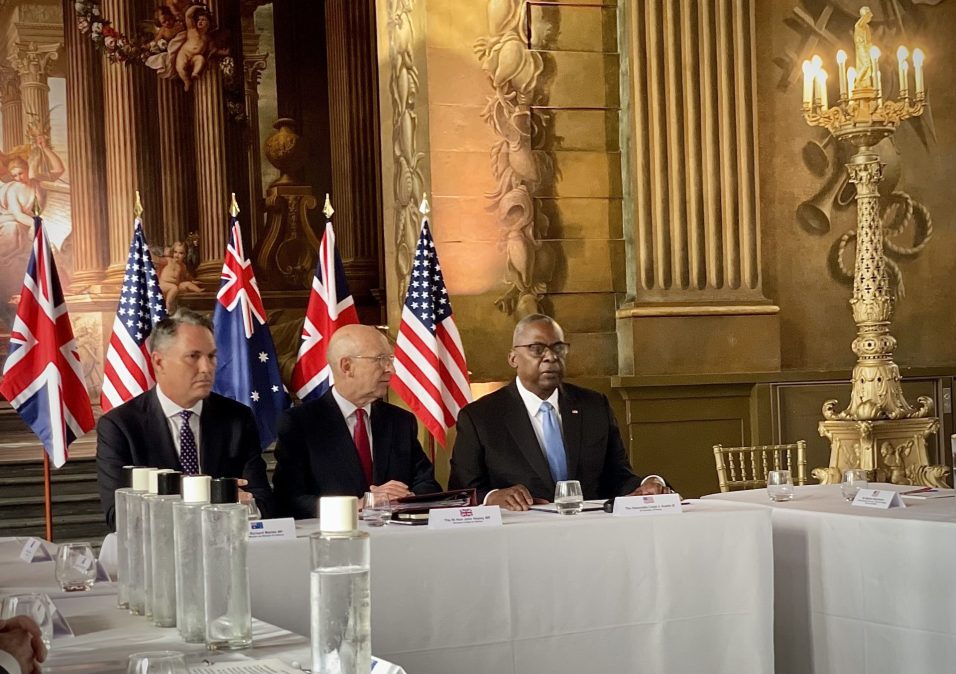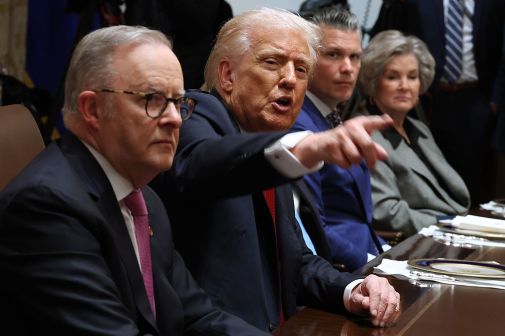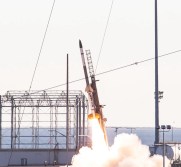AUKUS open to enabling more emerging tech options via Pillar 2

LONDON — The AUKUS alliance is open to further expanding its Pillar 2 capability areas to encompass more emerging technology categories for strategic acceleration, two senior defense officials told DefenseScoop.
The news comes as defense leaders from the U.S., U.K., and Australia are gathering in London on Thursday to participate in the trilateral security partnership’s third official ministerial meetings, since its launch in 2021.
Via AUKUS, the nations aim to collaboratively modernize their military capabilities, transform procurement processes, and co-develop next-generation weapons to ultimately deter China.
The partnership’s activities are organized across two overarching “pillars.”
The first focuses on building out a conventionally armed nuclear submarine force for Australia. Meanwhile, Pillar 2 is all about speeding up the making and delivery of emerging capabilities to support joint operations in the Indo-Pacific region.
When AUKUS was unveiled in September 2021, four initial Pillar 2 capability categories were announced: cyber, artificial intelligence, quantum technologies and additional undersea assets.
About eight months later, in April 2022, AUKUS leadership added hypersonic and counter-hypersonic capabilities, innovation and information sharing, and electronic warfare to the Pillar 2 mix for acceleration.
During a press briefing to preview the third round of AUKUS ministerial meetings this week, two senior defense officials told DefenseScoop there’s a possibility that more capability areas could be covered in Pillar 2 down the line.
“I think we have a really robust program. There are six capability areas, as you know, from the initial announcements and subsequent announcements that we’re working across with those six areas. There’s also subsets and a bunch of projects underneath all of those, and there is openness to looking at more,” a senior U.S. defense official said.
However, they and their colleague did not confirm or elaborate upon exactly which additional technologies they’re eyeing to open up to acceleration at this point.
Still, they noted that about every four months, a senior AUKUS body gets together to vet new project proposals, some of which then get moved up for final approval.
“The additional technical areas that we get into will be driven by the project proposals AUKUS looks at that we begin to execute — because the six areas compared to just what we look at in defense critical tech is many other boxes or pillars of work that could be included in these projects,” the other official said.
During his brief opening statement in the first engagement of the AUKUS ministerial meeting on Thursday, U.S. Secretary of Defense Lloyd Austin also expressed his aims to continue to build momentum with his British and Australian counterparts around joint technology-driving collaboration through the trilateral security partnership.
“I look forward to talking today about how we can maximize our historic export control exemptions to bolster innovation and industrial cooperation. And we’ll discuss ways to work even more closely together to eliminate barriers to sharing information and technology,” Austin said.






